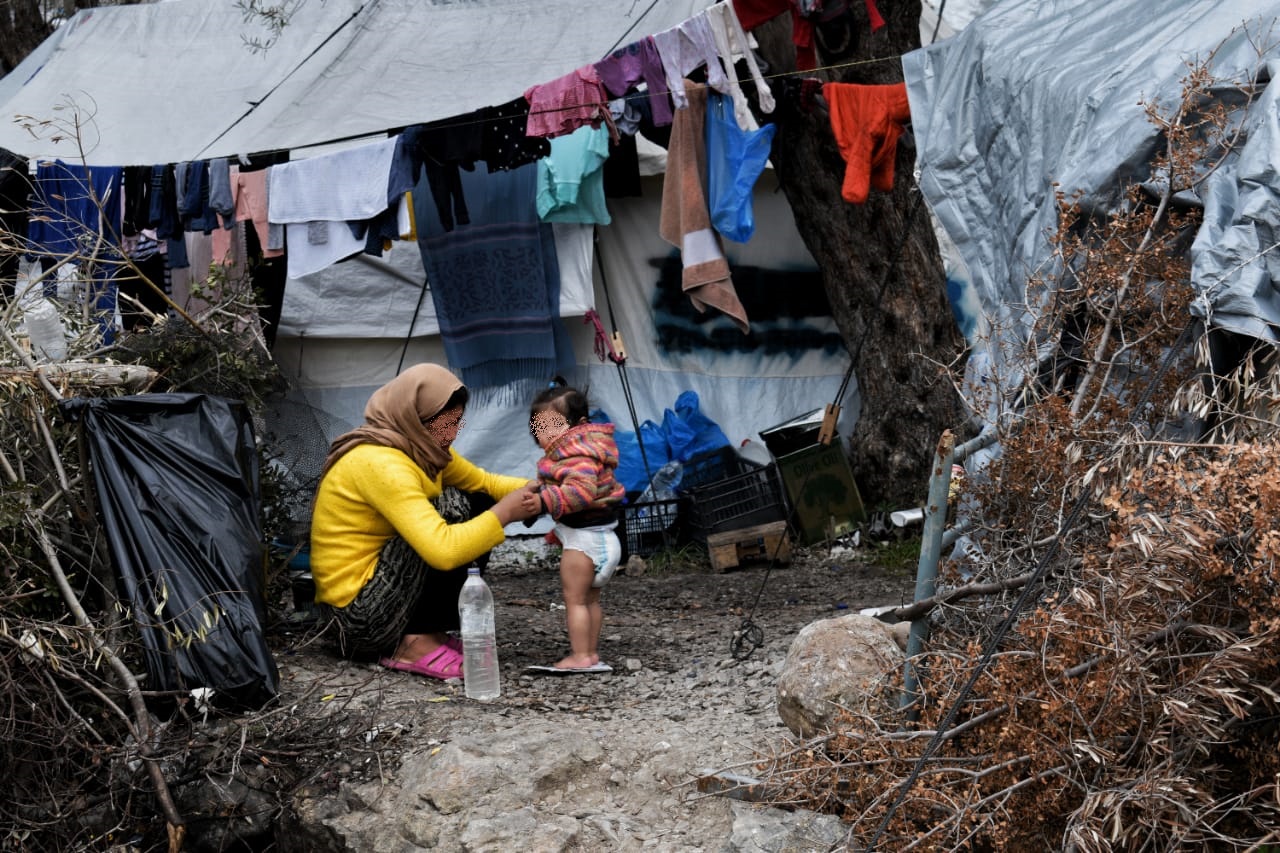19.03.2020
Since its election on an anti-immigrant platform, the ruling New
Democracy party in Greece has publicly pushed for the establishment of
closed detention centres for migrants who enter the country from Turkey,
with the intention of their eventual deportation to Turkey or their
country of origin.
After facing months of obstacles, including the
opposition of human rights groups, local communities and governments
across the Aegean islands to the construction of these closed
structures, recent measures taken ostensibly to control the spread of
COVID-19 are paving the way to the mass detention of migrants in Lesvos.
In both Kara Tepe Refugee Camp and Moria Refugee Camp, authorities have announced that movement outside the camp will be restricted to 100 people leaving each hour, between 7am-7pm, and that only one individual per family is allowed to leave the camps at a time. Given that the camps’ combined population is more than 20, 000 people, just 1 in 20 will be able to leave each day.
Kara Tepe Camp, which for the past four years has housed families – including many vulnerable individuals, children, and recognized refugees – has closed its gates, and the guards working there have been enforcing the above measures since last night. Those that are allowed to leave are instructed that they are only allowed to visit the next door supermarket, Lidl, and the pharmacy. Between 7pm and 7am, no one is allowed in or out of the camp.
Since this morning, the police have also blocked the main roads leading away from Moria Refugee Camp. There seems to be no system for enforcement of the above order, which is broadcast via a loudspeaker: police have been stopping most people from leaving the camp, but letting others through. Public buses continue to operate taking individuals from Mytilene to Moria Camp, but service from the Moria Camp into town was either cut or severely reduced as of today.
In Lesvos, for those outside the refugee camps, measures enforced to prevent the spread of COVID-19 are the same as those implemented throughout Greece: where indoor recreational gatherings involving 10 or more people are strongly discouraged, and citizens are strongly recommended to remain in their homes to avoid contact with people outside their immediate family circle. Circulation of people, however, has not been restricted as it has for Moria and Kara Tepe camp residents.
PREVENTION PLANS INADEQUATE TO PREVENT OR TREAT OUTBREAK
Meanwhile, plans for treatment of an eventual outbreak of COVID-19 in the camps is minimal. While police reinforcement was sent to Moria Camp this morning, no additional medical teams have been brought in. According to one medical actor, since the beginning of this week, medical actors are creating separate lines for those who have a fever and those who are seeking other medical attention, and are simply giving the former paracetamol (at arms’ length, but without any other protective measures) and advising them to return to their tents and remain in isolation for two weeks. Of course, isolation is impossible in both KaraTepe and Moria camps, as individuals normally share their living spaces with 5, 10, 20 other people. Furthermore, bad weather in recent weeks means that vulnerable and ill people may be isolated to flimsy tents in the cold and in heavy rain storms – with no safe, dry or warm place to recuperate. The island of Lesvos has only one confirmed case of COVID-19 (which did not occur in either camp); however, only the most serious cases are being sent for testing, so the actual number could be much higher.
The majority of migrants who arrived after 1 March, following the Greek government’s suspension of the right to seek asylum, continue to be held in unsanitary conditions without access to adequate medical care. A lack of running water, cramped living spaces in tents or public buses, and the inadequacy – or total lack of – hygiene facilities render basic precautionary measures impossible. However, more than 450 detainees who were previously held in the port of Mytiline have now been transferred to a closed camp on the mainland; tomorrow, there is a planned transfer of a further 189 new arrivals to closed structures elsewhere in Greece. What this demonstrates is that the state has the capacity to transfer large numbers of people – and therefore could intervene to remove the most vulnerable from the severe risks in Moria and Kara Tepe camps – but the deciding factor remains whether such relocations suit the government’s political agenda. At present, containment continues to take precedence over care.
The isolation of the two camps today seems an effort to keep the migrant population segregated from the rest of the population of the island. An outbreak now would be impossible to control, and the already strained health system would be unable to respond. It would be disingenuous to suggest that isolation of the camps is to protect the migrant population, as residents are completely lacking in any other measures to protect themselves, including access to water, soap, and ability to self isolate. Instead of protecting them, it abandons these people to the realities of a long-neglected health crisis that will be hit by a global pandemic. If rapid measures are not taken to evacuate the most vulnerable individuals and prepare for provision of emergency health care to this population, Greece is signing the death sentence for potentially hundreds of vulnerable individuals living in these camps.

